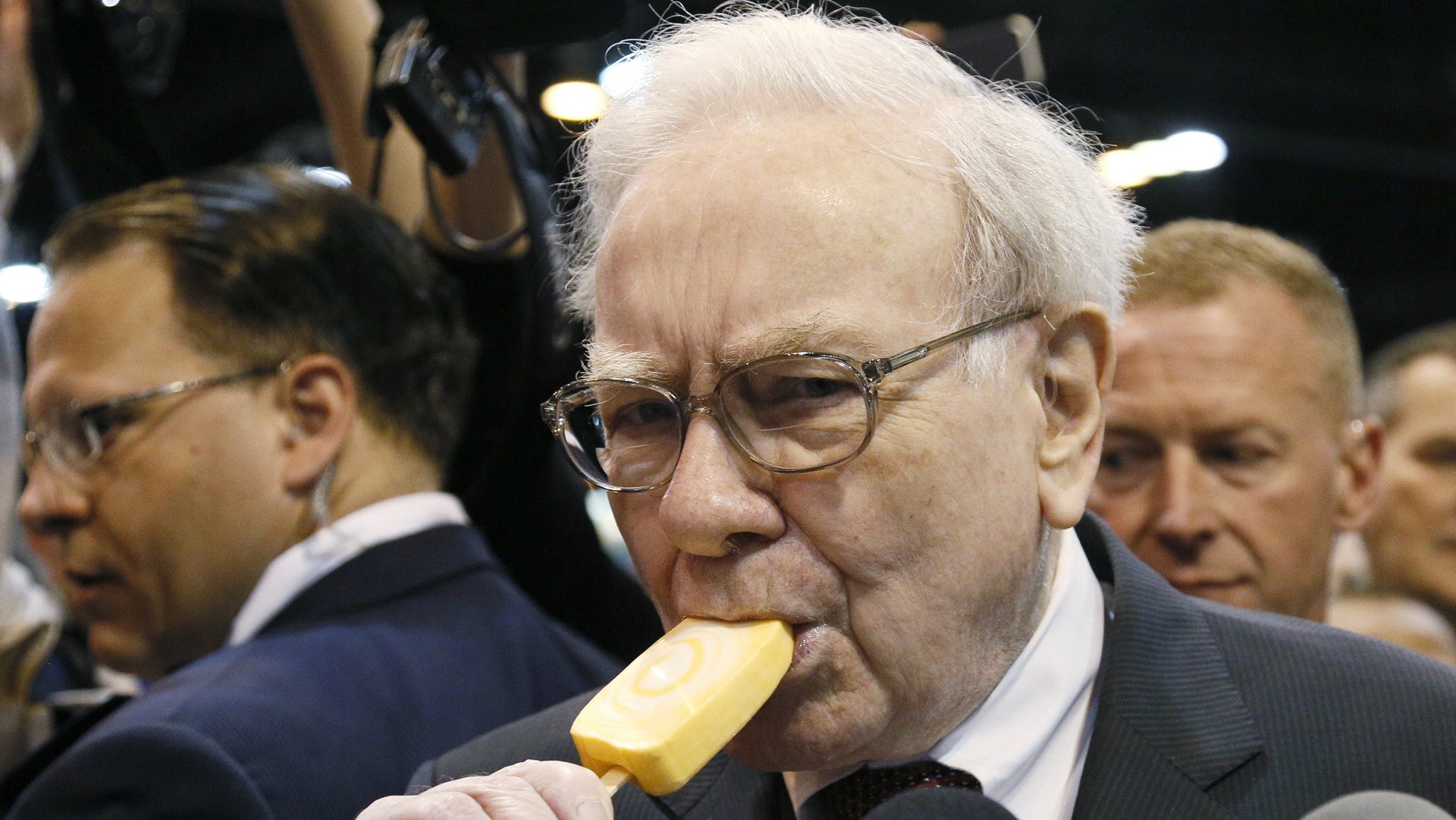One of the food world’s most controversial mergers just got the biggest cheerleader of all: Warren Buffett
The second-richest person on the planet has signaled support for the controversial $66 billion merger of Bayer and Monsanto.


The second-richest person on the planet has signaled support for the controversial $66 billion merger of Bayer and Monsanto.
Warren Buffett’s Berkshire Hathaway announced yesterday that it had purchased 8 million shares—valued at more than $800 million—in Monsanto in the fourth quarter, after the proposed acquisition was announced in September 2016. If the merger is approved by US regulatory authorities, it would forge a marriage between two of the world’s top suppliers of farm pesticides and seeds.
That Buffett’s group would make such an investment indicates the Nebraska-based tycoon—worth $75 billion or so and known for making incredibly lucrative long-term bets—is feeling confident the acquisition will be approved.
If that’s the case, it would come at a time in which six agricultural companies are vying for mega-mergers simultaneously—something that has left consumer groups and farmers nervous about global implications and impact to the food system.
In September, top executives from Bayer, Monsanto, DuPont, Dow Chemical, and Syngenta testified before congressional leaders in Washington, DC, making a case for why regulators should approve their proposals. (Executives from the sixth company involved in the consolidation, China National Chemical, declined an invitation to appear at the hearing).
At the most theoretical level, the question for regulators is straightforward: Should people trust three massive companies to shepherd consumers and farmers into a future that can responsibly feed a growing global population?
The companies say the mergers would combine their expertise and allow for greater efficiency in serving farmers and consumers. Critics complain that more efficiency would come with major caveats—possible price hikes and less competition in the marketplace.